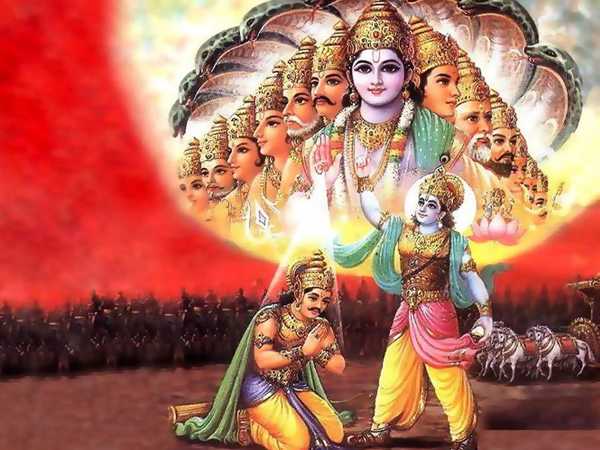Chapter 12

“Vasudeva said, “There are two kinds of ailments, physical and mental.They are produced by the mutual action of the body and mind on eachother, and they never arise without the interaction of the two. Theailment that is produced in the body, is called the physical ailment, andthat which has its seat in the mind, is known as the mental ailment. Thecold, the warm (phlegm and bile) as well as the windy humours, O king,are the essential transformations generated in the physical body, andwhen these humours are evenly distributed, and are present in dueproportions, they are said to be symptomatic of good health. The warmhumour is acted upon (allayed) by the cold, and the cold by the warm. AndSattwa, Rajas and Tamas are the attributes of the soul, and it is said bythe learned that their presence in due proportions indicates health (ofthe mind). But if any of the three preponderates, some remedy is enjoined(to restore the equilibrium). Happiness is overcome by sorrow, and sorrowby pleasure. Some people while afflicted by sorrow, desire to recall(past) happiness, while others, while in the enjoyment of happiness,desire to recall past sorrow. But thou, O son of Kunti, dost neitherdesire to recall thy sorrows nor thy happiness; what else dost thoudesire to recall barring this delusion of sorrow? Or, perchance, O son,of Pritha, it is thy innate nature, by which thou art at presentoverpowered. Thou dost not desire to recall to thy mind the painful sightof Krishna standing in the hall of assembly with only one piece of clothto cover her body, and while she was in her menses and in the presence ofall the Pandavas. And it is not meet that thou shouldst brood over thydeparture from the city, and thy exile with the hide of the antelope forthy robe, and thy wanderings in the great forest, nor shouldst thourecall to thy mind the affliction from Jatasura, the fight withChitrasena, and thy troubles from the Saindhavas. Nor it is proper, O sonof Pritha, and conqueror of thy foes, that thou shouldst recall theincident of Kichaka’s kicking Draupadi, during the period of thy exilepassed in absolute concealment, nor the incidents of the fight which tookplace between thyself and Drona and Bhishma. The time has now arrived,when thou must fight the battle which each must fight single-handed withhis mind. Therefore, O chief of Bharata’s race, thou must now prepare tocarry the struggle against thy mind, and by dint of abstraction and themerit of thine own Karma, thou must reach the other side of (overcome)the mysterious and unintelligible (mind). In this war there will be noneed for any missiles, nor for friends, nor attendants. The battle whichis to be fought alone and single-handed has now arrived for thee. And ifvanquished in this struggle, thou shalt find thyself in the most wretchedplight, and O son of Kunti, knowing this, and acting accordingly, shaltthou attain success. And knowing this wisdom and the destiny of allcreatures, and following the conduct of thy ancestors, do thou dulyadminister thy kingdom.”




